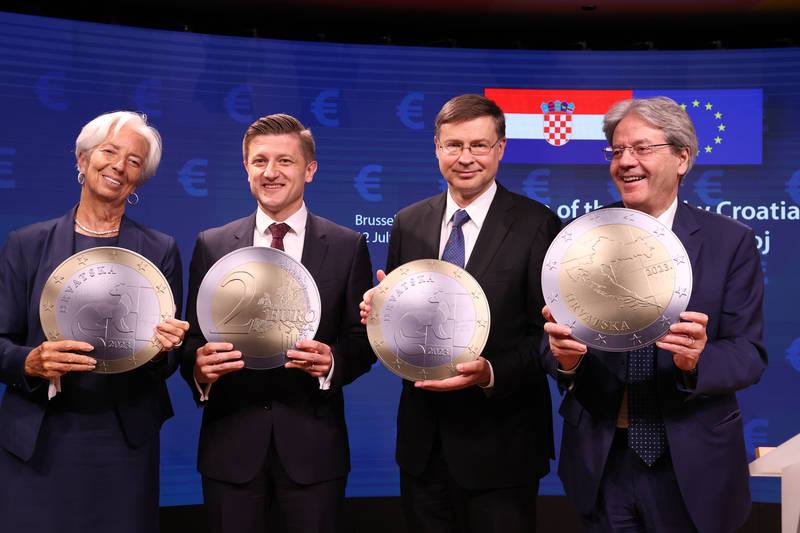Sponsored Content
Croatia's Euro Accession: "Great Advantages for the Domestic Economy "
As of 1 January 2022, Croatia will officially become part of the euro area. This holds great opportunities for Austrian companies.
 Christine Lagarde, Zdravko Marić, Croatian Deputy Prime Minister and Minister for Finance, Valdis Dombrovskis and Paolo Gentiloni. / Picture: © EU European Union
Christine Lagarde, Zdravko Marić, Croatian Deputy Prime Minister and Minister for Finance, Valdis Dombrovskis and Paolo Gentiloni. / Picture: © EU European Union
With the recently concluded agreement of the EU finance ministers, it is now fixed - Croatia will join the euro zone as of 1 January 2023. The last hurdle, the concrete exchange rate between the Croatian kuna and the euro, has now been finally fixed at 7.5345 kuna per euro.
This means that from now on nothing stands in the way of Croatia becoming the 20th country in which the…
or Log In
Fast News Search





